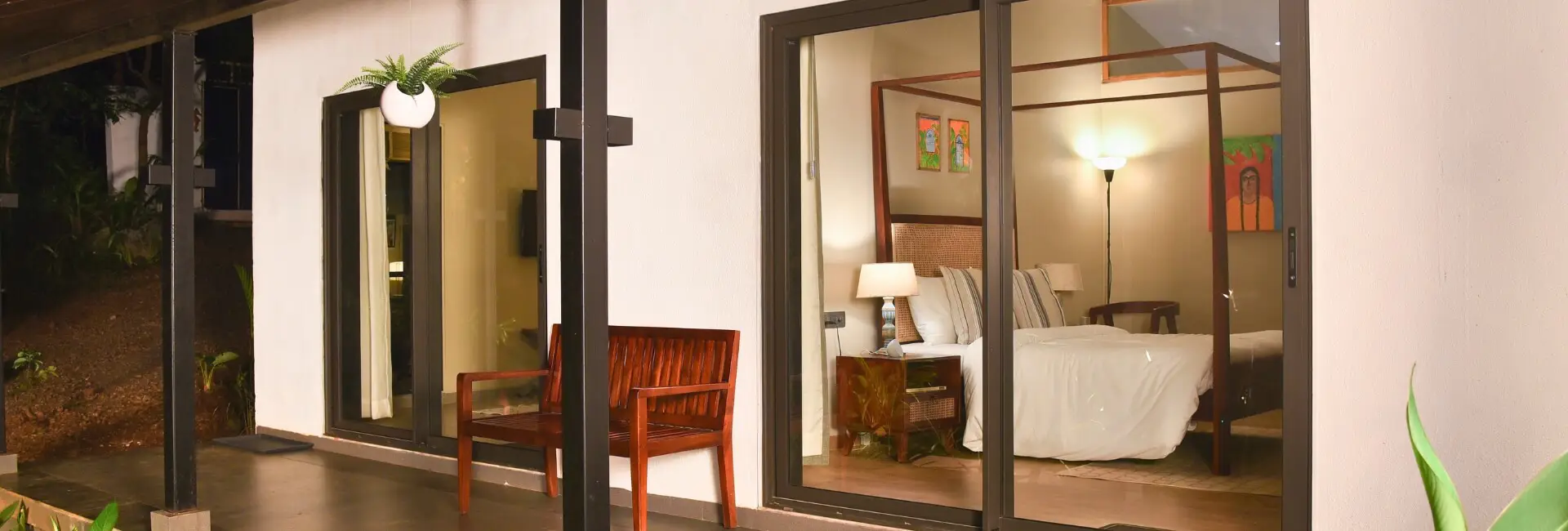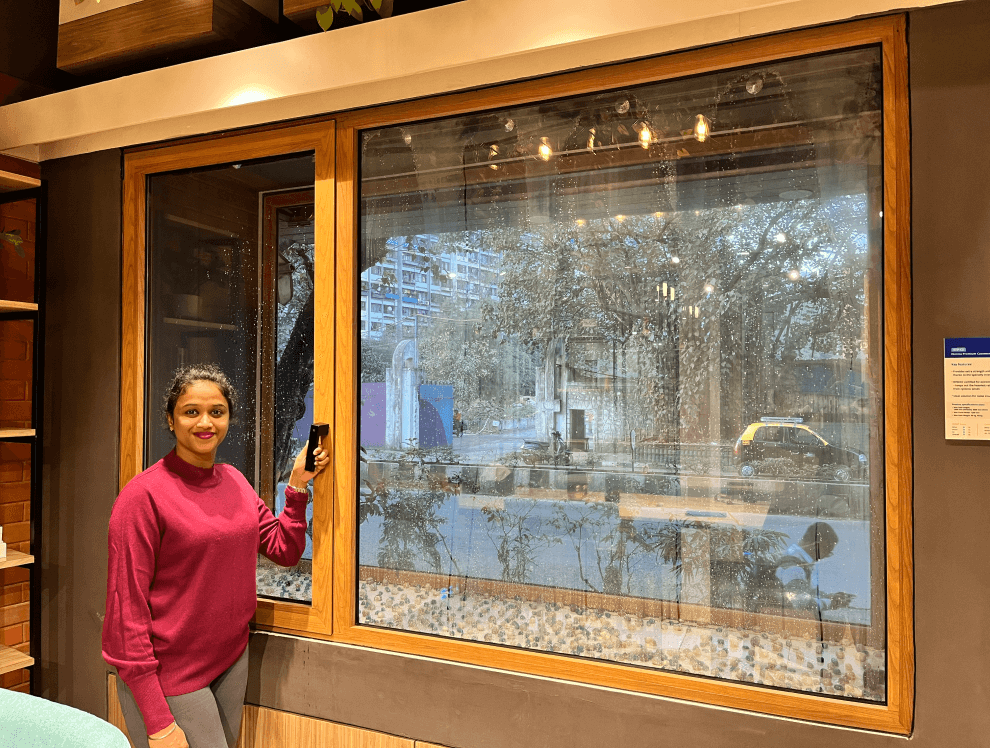
How Noise-Reducing Windows Work: A Deep Dive into Soundproofing Technology?
In an increasingly urbanised world, noise pollution is no longer just an inconvenience but a serious concern for physical and mental well-being. Constant exposure to high-decibel environments can disrupt sleep, affect concentration, and elevate stress levels.
As homes evolve into sanctuaries from the chaos outside, the demand for soundproofing windows has grown tremendously. Today, more and more homeowners and builders are investing in noise abatement windows in designer aluminium window frames to achieve peace of mind while also maintaining the home aesthetics.
But how do these noise-reducing windows work? What makes them different from traditional window solutions? This comprehensive guide will explore the science and technology behind aluminium windows designed for noise control, and how you can choose the right solution for your space.
Why Noise Control Matters in Homes
Noise pollution isn’t just annoying—it has real consequences. Studies have linked long-term exposure to urban noise with poor sleep, higher stress levels, reduced productivity, and even cardiovascular issues. In cities like Mumbai, Delhi, or Bangalore, where decibel levels often exceed safe limits, investing in soundproofing windows isn’t a luxury—it’s a necessity.
Homes near highways, railway lines, busy marketplaces, or airports especially benefit from noise abatement windows, as they significantly reduce the amount of external noise entering indoor spaces.
Understanding the Problem: What is Noise Abatement?
Noise abatement refers to the process of reducing or eliminating unwanted sound. This can be done at the source, the transmission path, or the receiver’s end. In homes and buildings, noise abatement windows serve as the last line of defence between the bustling outside world and the peaceful indoor environment.
They are engineered to weaken the transmission of sound waves through the glass and frame using a combination of structural design, innovative materials, and precision engineering.
The Science Behind Soundproofing Windows
Sound travels through various media by vibration in the form of waves, while some materials are more likely to vibrate and thus transmit sound, while others are less so. Soundproofing involves controlling how sound waves travel through air and solid materials. Ordinary glass windows are not effective sound barriers because sound can easily pass through them or seep in through gaps and frames. This is why soundproofing windows incorporates specific technologies to counteract sound transmission.
Let’s break down how they work.
1. Multi-Pane Construction
Unlike traditional single-glass windows, noise abatement windows feature two or more layers of glass. This multi-pane construction, called double or triple glazing, creates physical barriers that disrupt sound waves.
Double-glazed windows use two panes of glass separated by a layer of air or inert gas (like argon). Triple-glazed windows add a third pane, providing an even higher level of sound insulation. These layers absorb and reflect incoming sound, weakening it before it reaches your ears.
2. Acoustic Glass Technology
Another critical component in soundproof window design is acoustic glass. This is laminated glass sandwiched between a noise-dampening interlayer (usually made of PVB—polyvinyl butyral). This interlayer acts like a sponge, absorbing vibrations and softening the harshness of sound before it passes through. Acoustic glass is especially effective for high-pitched sounds like voices, sirens, or horns, making it a popular choice for bedrooms and study areas in urban homes.
3. Frame Design and Insulation
A poorly sealed frame can let sound in even if your glass is soundproof. That’s why designer aluminium windows are gaining popularity as soundproofing solutions. Aluminium frames can be manufactured with extreme precision and offer better sealing than traditional wooden frames.
4. Air Gaps and Layer Variation
One often overlooked aspect of window acoustics is the size of the air gap between panes and the variation in glass thickness. Larger gaps and differing thicknesses (e.g., 6mm on one pane, 10mm on the other) help prevent sound frequencies from aligning and amplifying, which would otherwise let noise pass through more easily. A well-engineered air gap serves as a buffer zone, stopping sound vibrations in their tracks.
Benefits of Noise Abatement Windows
The primary function of soundproofing windows is to reduce the decibel level of external noise. High-quality noise abatement windows can reduce sound transmission by 40 to 50 decibels, making a noticeable difference in homes located in crowded urban settings. In fact, homes equipped with high-performance aluminium windows designed for noise reduction are more appealing to buyers and renters. These windows improve comfort, aesthetics, and efficiency—an investment that pays off over time.
Considerations when buying Soundproofing Windows
Customising your noise abatement solution ensures it meets the specific needs of your environment. When selecting soundproofing windows for your home, consider the following factors:
- Level of external noise (e.g., traffic, construction, airports)
- Type of building (residential, commercial, high-rise)
- Room function (bedroom, home office, study)
- Aesthetic preferences (frame colour, size, opening style)
- Budget (as designer aluminium windows can come with premium features)
Once you have assessed the criteria, the following factors can help determine the best aluminium window for your needs:
- Glass Thickness: Increasing the thickness improves performance across different frequency ranges.
- Gap Size Between Panes: A wider gap can block lower-frequency sounds more effectively.
- Gas Fillings: Argon or krypton gas between the glass panes enhances insulation.
- Acoustic Ratings: To understand their effectiveness, look for windows rated for STC (Sound Transmission Class) and OITC (Outdoor-Indoor Transmission Class).
Leading designer aluminium window manufacturers like Eternia offer tailored solutions with varied glazing, frame materials, and size combinations. To ensure optimal results, seek professional consultation with an experienced aluminium window provider.
Final Thoughts
Noise pollution can significantly affect the quality of life, especially in India’s fast-growing urban areas. Homeowners can transform noisy environments into peaceful retreats by investing in high-performance noise abatement windows. Today’s soundproofing windows offer a sophisticated and effective solution to a modern problem through the use of laminated glass, multi-glazing, sealed frames, and custom design.
Incorporating designer aluminium windows ensures you don’t just block the noise—you do it in style. With increasing demand for functional yet elegant living spaces, the future of aluminium windows lies in blending performance with personalised design, ensuring comfort, efficiency, and beauty in every home.


 +91 97699 40000
+91 97699 40000











